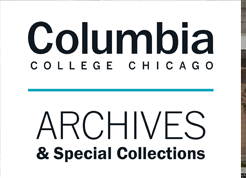Document Type
Article
Loading...
Publication Date
Spring 2009
Keywords
Trans-Africa Reform, Randall Robinson, United Church of Christ Commission for Racial Justice, United Church of Christ Office for Church in Society, Students, Political activity, Camp Lejeune (N.C.), United States Marine Corps, Bill Moyers, Lyndon B. Johnson, Vietnam War, Cuban Missile Crisis, Fidel Castro, Civil rights movements, University of Chicago, Chicago Theological Seminary, Continental Bank Corporation, Prexy Nesbitt, Diamonds, South Africa, Bongo Nwalegobu, Pan Africanist Congress, Robben Island (South Africa), Soweto Uprising, Lisa Brock, Kairos documents
Disciplines
Political Science | Political Theory | Race and Ethnicity | Race, Ethnicity and Post-Colonial Studies | Work, Economy and Organizations
Abstract
Length: 175 minutes
Oral history interview of Jeremiah Wright by Arlen Parsa
Rev. Wright begins by describing his family, his “atypical” childhood, and his early aspirations to become a seminary professor. He explains the impact that the civil rights sit-ins had on his perspective and direction of his career path, attending college, joining the military, and entering the seminary. He explains how he became involved in the anti-Apartheid movement through his acquaintance with South African students in Chicago, his participation in TransAfrica and Commission for Racial Justice, and his involvement in divestment efforts within the churches. He reviews the history of religion being used to justify racism and slavery. He describes his African ministry and the role it played in educating young people about South Africa’s history, and his own first trip to South Africa. He discusses how they received information about events in South Africa at the time, his response to Mandela’s release, and the events following the end of Apartheid. He concludes by explaining the effect the anti-Apartheid movement had on his own perspective of the world.
Recommended Citation
Parsa, Arlen. "Interview with Jeremiah Wright" (Spring 2009). Oral Histories, Chicago Anti-Apartheid Collection, College Archives & Special Collections, Columbia College Chicago. http://digitalcommons.colum.edu/cadc_caam_oralhistories/17
Creative Commons License

This work is licensed under a Creative Commons Attribution-NonCommercial-No Derivative Works 4.0 International License.
Included in
Political Theory Commons, Race and Ethnicity Commons, Race, Ethnicity and Post-Colonial Studies Commons, Work, Economy and Organizations Commons



Biography and Comments
Rev. Wright was born in 1942 in Philadelphia. He initially attended Virginia Union University before joining the Marine Corp, then the Navy where he trained as a cardiopulmonary technician, serving on the medical team for President Lyndon B. Johnson. He then attended Howard University, earning both a BA and MA in English, before earning a second MA from the University of Chicago Divinity School. He went on to complete his doctorate of ministry at the United Theological Seminary. Rev. Wright served as pastor at Trinity United Church of Christ in Chicago for 36 years before retiring in 2008.
The interviewer conducted this oral history as part of his/her coursework for the Spring 2009 class, Oral History: The Art of the Interview. This interview supports the scope and content of the Chicago Anti-Apartheid Movement Collection at the College Archives & Special Collections department of Columbia College Chicago. Contact archives@colum.edu for more information and to view the collection.